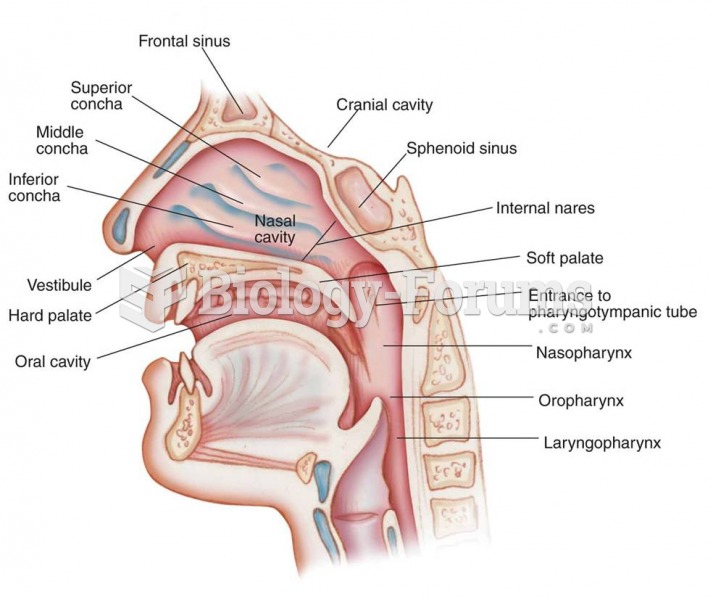|
|
|
Vaccines prevent between 2.5 and 4 million deaths every year.
The use of salicylates dates back 2,500 years to Hippocrates’s recommendation of willow bark (from which a salicylate is derived) as an aid to the pains of childbirth. However, overdosage of salicylates can harm body fluids, electrolytes, the CNS, the GI tract, the ears, the lungs, the blood, the liver, and the kidneys and cause coma or death.
Common abbreviations that cause medication errors include U (unit), mg (milligram), QD (every day), SC (subcutaneous), TIW (three times per week), D/C (discharge or discontinue), HS (at bedtime or "hours of sleep"), cc (cubic centimeters), and AU (each ear).
For pediatric patients, intravenous fluids are the most commonly cited products involved in medication errors that are reported to the USP.
In the United States, an estimated 50 million unnecessary antibiotics are prescribed for viral respiratory infections.







